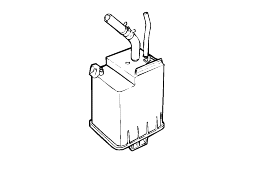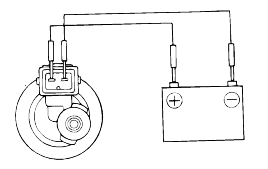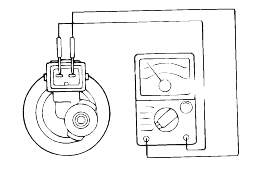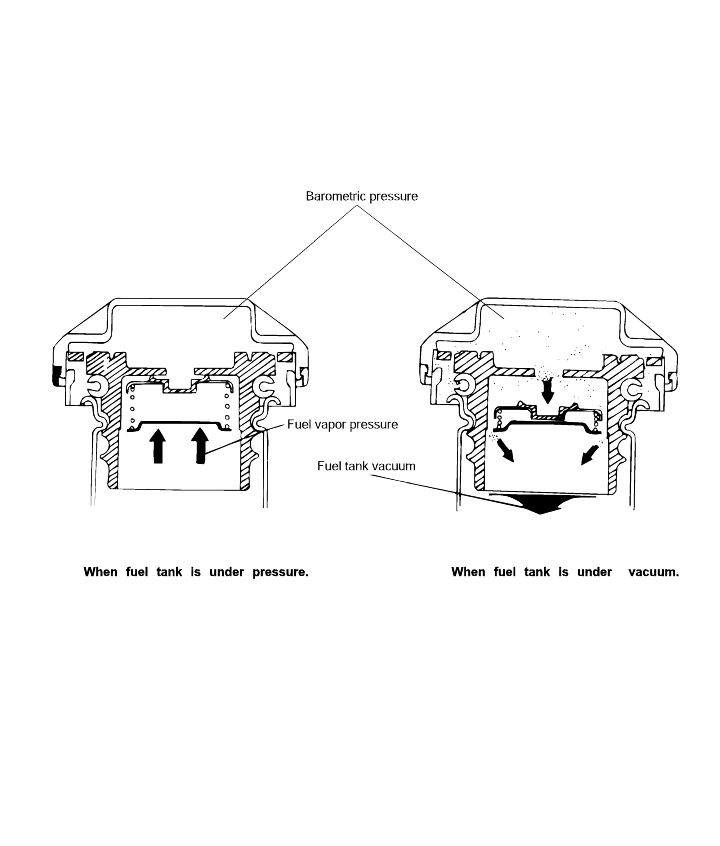After removing the EVAP canister, inspect for cracks or damage.

Look for loose connections, sharp bends or damage to the fuel vapor lines.
Look for distortion, cracks or fuel leakage.
After removing the EVAP canister, inspect for cracks or damage.

When disconnecting the vacuum hose, make an identification mark on it so that it can be reconnected to its original position.
Disconnect the vacuum hose from the solenoid valve.
Detach the harness connector.
Connect a vacuum pump to the nipple to which the red-striped vacuum hose was connected.
Apply vacuum and check when voltage is applied to the evaporative emission canister purge solenoid valve and when the voltage is discontinued.
Battery voltage | Normal condition |
When applied | Vacuum is released. |
When discontinued | Vacuum is maintained. |

Measure the resistance between the terminals of the solenoid valve.
Evaporative emission canister purge solenoid valve Coil resistance: 26Ω[at 20° C(68° F)] |


Look for loose connections, sharp bends or damage to the fuel vapor lines.
Look for distortion, cracks or fuel leakage.
After removing the EVAP canister, inspect for cracks or damage.

When disconnecting the vacuum hose, make an identification mark on it so that it can be reconnected to its original position.
Disconnect the vacuum hose from the solenoid valve.
Detach the harness connector.
Connect a vacuum pump to the nipple to which the red-striped vacuum hose was connected.
Apply vacuum and check when voltage is applied to the evaporative emission canister purge solenoid valve and when the voltage is discontinued.
Battery voltage | Normal condition |
When applied | Vacuum is released. |
When discontinued | Vacuum is maintained. |

Measure the resistance between the terminals of the solenoid valve.
Evaporative emission canister purge solenoid valve Coil resistance: 26Ω[at 20° C(68° F)] |

